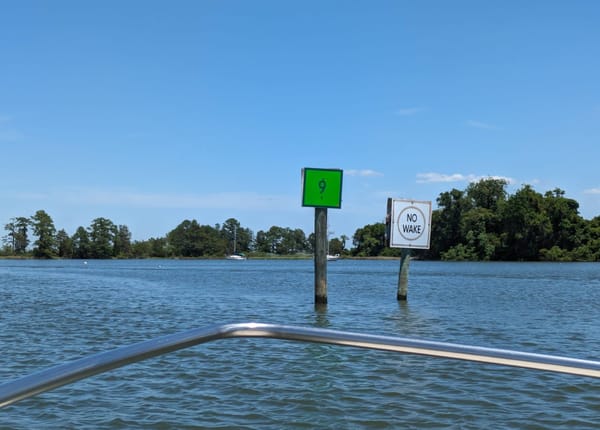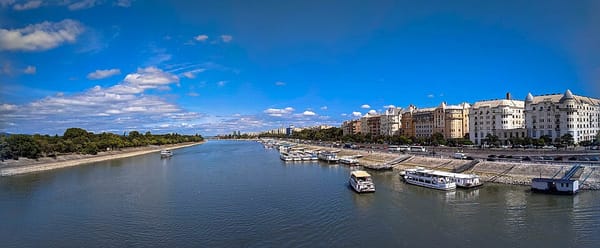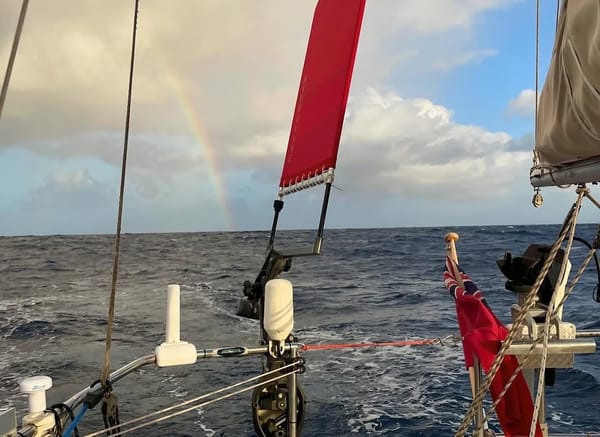Safety in Boating: What is a Ditch Bag and What to Put in It
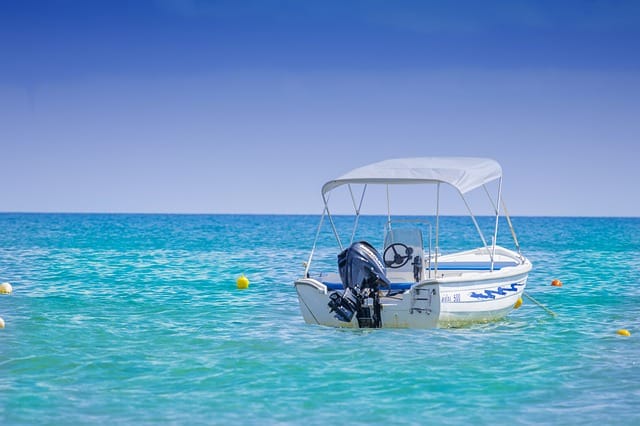
As boaters, we never want to think about having to abandon ship. But severe cases of fire, sinking or running aground might require that you do just that. You’ll want to have a readily accessible ditch bag (also known as an abandon ship bag) if this situation ever happens when away from a boat slip rental, marina or boat ramp.
Depending on whether you spend your boating time offshore, near shore or on inland lakes, you’ll need different items but the general idea is the same. Even if you have a dinghy or life raft, a ditch bag is a necessity. You don’t know how long you might be out there. We’ve complied a list of the top items you should have in your ditch bag for signaling, safety, survival and communication.
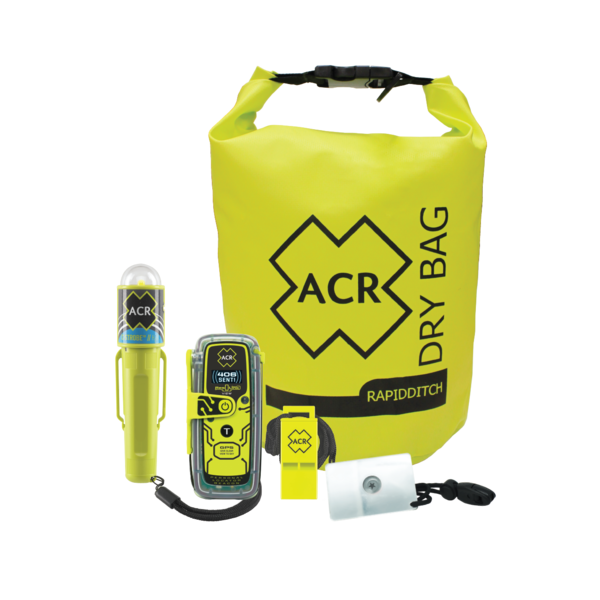
Photo: ACR Artex (via Facebook)
What to Put in a Ditch Bag
- Emergency Position Indicating Radio Beach (EPIRB) - This device accurately sends out your location when activated to Search and Rescue teams worldwide. It must be registered with the EPIRB National Authority in your country.
- Personal Locator Beacon (PLB) is smaller than an EPIRB but till sturdy. It has GPS positioning and a 406 MHz signal to indicate your position. There’s built in strobe and infrared strobe for nighttime use. No subscription is required.
- Flares for visual signaling (SOLAS-grade flares can be seen for the furthest distance). You could also include rescue mirrors, strobes, dye markers or orange smoke day signals.
- A waterproof handheld VHF radio and a handheld GPS (along with extra batteries) for spoken communication and to know where you are.
- Satellite phone
- Cell phone (useful for near shore boating)
- Medical and safety items: flashlight, whistle, first aid kit with anti-bacterial skin ointment, sea sickness tablets and other general safety items.
- Survival gear: knives, light sticks, space blankets, fishing gear, speargun, cords, rope and waterproof charts.
- Water and food such as trail mix and packaged items.
- A hand-operated reverse osmosis water maker could come in handy for offshore boating locations.
- Personal items: passports, driver’s license, cash and credit cards (you will probably need these items after being rescued).
If you have a dinghy, its equipment bag may also have some of these items, but it’s still a good idea to have extra in a ditch bag in case you end up floating in the water.
When planning your ditch bag list, consider:
- How long it could take for rescue
- How far offshore you might be
- If there are other boats in the area where you’ll be
Ditch Bag Tips
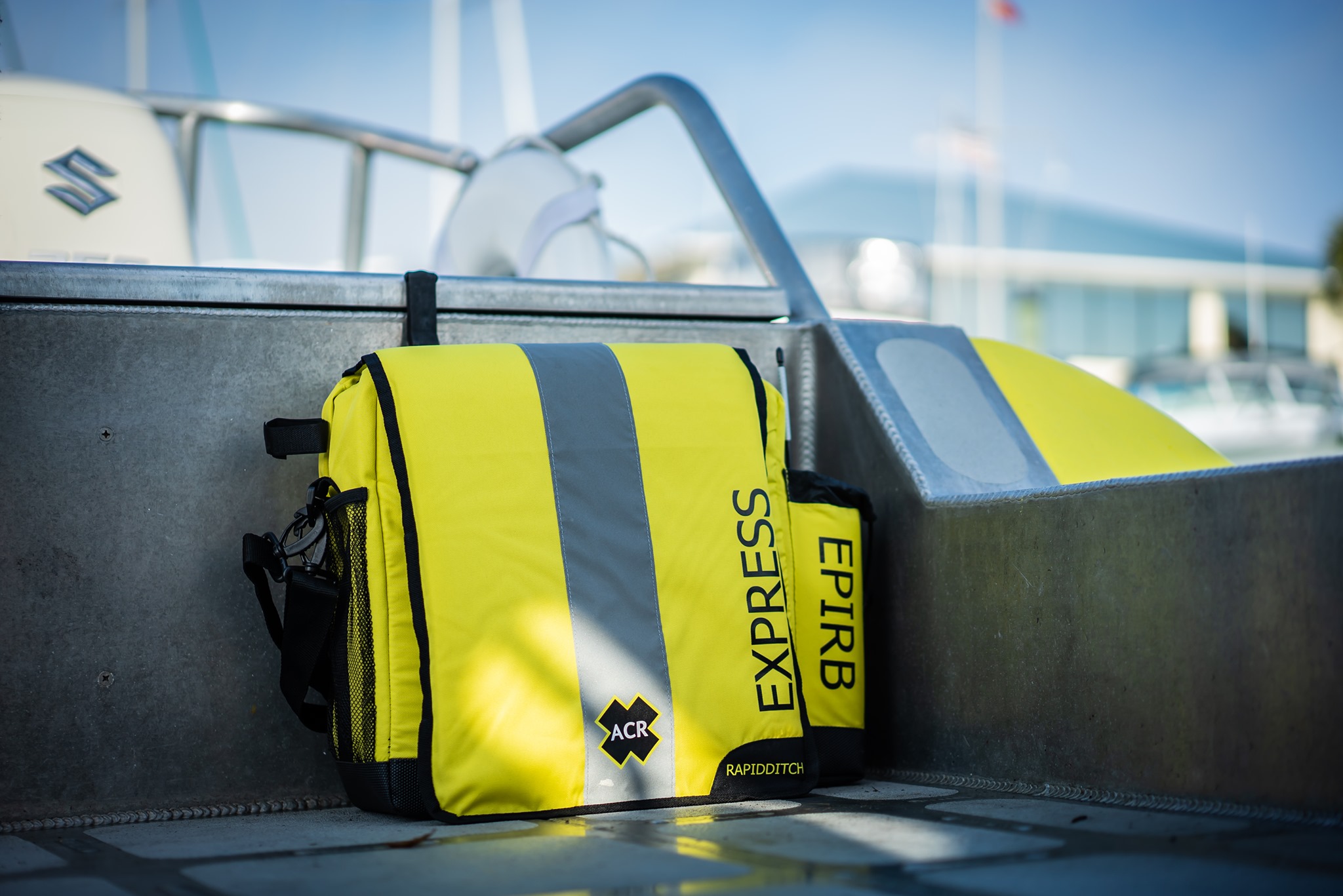
Photo: ACR Artex (via Facebook)
Bag Basics
The bag itself is important. You’ll want to choose a dry bag that’s sturdy, waterproof, highly visible, has interior pockets for flares, medical supplies, food and water and has positive flotation. A backpack style is handy so that you don’t lose grip on it.
The ACR RapidDitch Express Bag is buoyant to hold up to 15 lbs. of gear and tools. Rescue teams can spot the reflective exterior. It’s made from water-resistant fabric with corrosion-resistant zippers. You can unhook the straps to make two 4-foot safety harnesses to keep everyone together in the water. There are pockets, loops and tethers to keep everything in place as well as a designated spot for an EPIRB.
Easy Access
Store your stocked ditch bag where everyone on board knows where it is. It’s a good idea to make one person the designated ditch bag grabber. That way, you don’t have the case where everyone thought someone else was going to get it.
Practice, Practice, Practice
Practice your abandon ship drill just like you would a fire drill at your house. Do this at the private boat dock rental before heading out for the day.
Extra Assurance
Along with a well-stocked ditch bag, always have a float plan for added assurance of communication and rescue.
Boating activities where you never want to forget a ditch bag include:
- Fishing the flats in the backcountry and remote areas
- Offshore fishing
- Snorkeling and diving out on the reef
- Boating at night
Adventurous cruisers heading to the Bahamas from Florida, traveling along the Great Loop, sailing to the Dry Tortugas or taking on the Bahamas – Cuba Loop need a ditch bag prepared before ever leaving a private boat dock rental.
We hope you’ve gathered some helpful tips to make your next boating adventure safe and worry-free. Keep that ditch bag updated and stocked with the necessary tools and signaling devices. And remember to take it with you before leaving the dock or a boat slip for rent.
